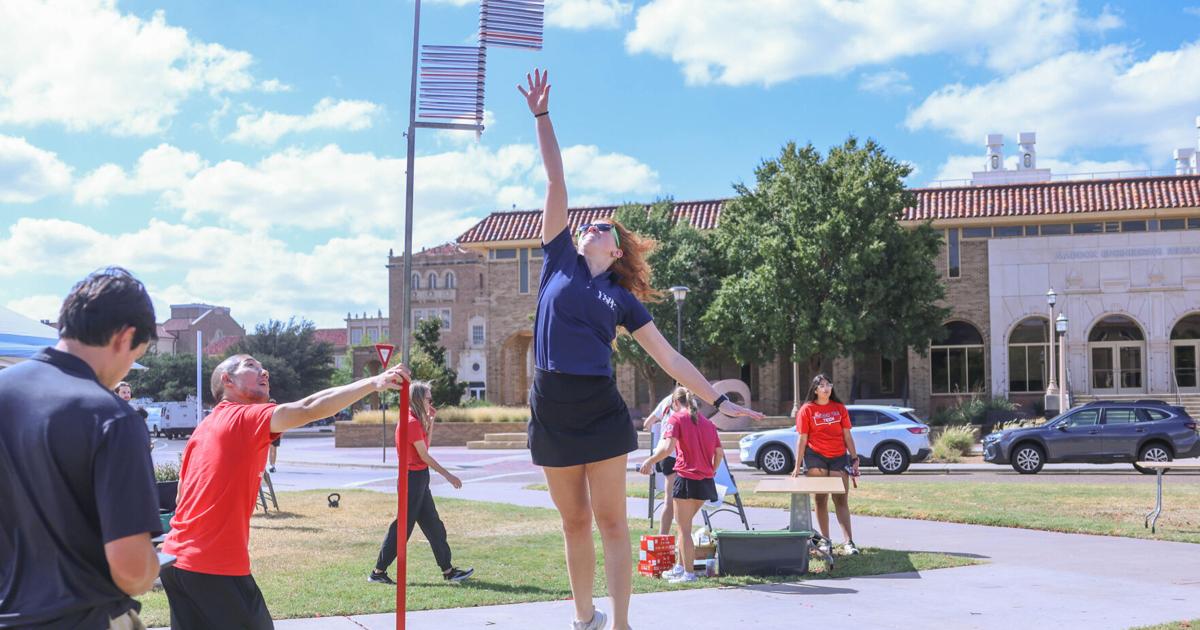On the grassy fields of the Engineering Key, hearts raced and muscles ached as Texas Tech hosted its first event in recognition of Exercise is Medicine Month on Tuesday.
According to an email from President Schovanec on Oct. 1, Exercise is Medicine Month will be hosted in collaboration with Tech’s Department of Kinesiology and Sport Management, the Center of Excellence in Obesity and Metabolic Research, the Institute for One Health Innovation and University Recreation.
Kembra Albracht-Schulte, an assistant professor in kinesiology and director of the Center of Excellence in Obesity and Cardiometabolic Research, said the decision to recognize the month arose from Tech wanting to emphasize the positive effects of exercise on health.
“Exercise is Medicine Month is an opportunity to highlight the very powerful role that physical activity plays in preventing and managing chronic disease,” Albracht-Schulte said.
She said the decision to recognize the month was not prompted from concern for the student body. Instead, it arose from a want to improve general American health, which can impact educational and professional environments.
“We know that regular movement can help by improving cardiovascular health. It can help to manage a healthy body weight. It can lower our risk for Type 2 diabetes,” Albracht-Schulte said. “It can help with our mental health, even help us to perform better academically and at work.”
Tuesday’s event featured demonstrations on how students can use movement to improve certain ailments, such as relieving pain or stress. Exercises including vertical jumps, medicine ball throws, kettlebell swings and campus walks all drew students to participate and learn about the importance of exercise in everyday life.
First-year masters student Josh Spiegel from Grand Rapids, Michigan, is currently studying kinesiology. He said the opportunity to exercise as a community creates a more welcoming environment for beginners who might be new to intensive physical activity.
“People look at Instagram or TikTok, and they see these super-fit guys doing insane fitness programs, but starting where you’re at is the biggest step you can take,” Spiegel said. “At its core, the best thing you can do to begin is to start moving throughout your day more.”
Also at the event were a number of activities and resources, including information tables offering advice on how to improve different aspects of physical and mental health for beginners and veteran athletes alike.
Nyasha Williams, a first-year graduate student studying sports management from Indianapolis, Indiana, also said exercise has benefits beyond physical activity, which can support one’s everyday life.
“Staying active always helps me get my day started. Working out in the morning gets me refreshed and productive for the rest of the day,” Williams said. “Overall, it helps students handle their stress and mental health, not just their physical health.”
As Williams sees it, getting involved in one’s own physical health doesn’t take much. Simply being engaged just a bit each day is a step towards improving both mental and physical health.
“Try to incorporate getting active 30 minutes a day to start, and gradually increase as you go,” Williams said. “Some people like weightlifting. Some people like going on walks. It’s different for everybody, so just find what works for you.”
Contributed to by Christian Jeter

